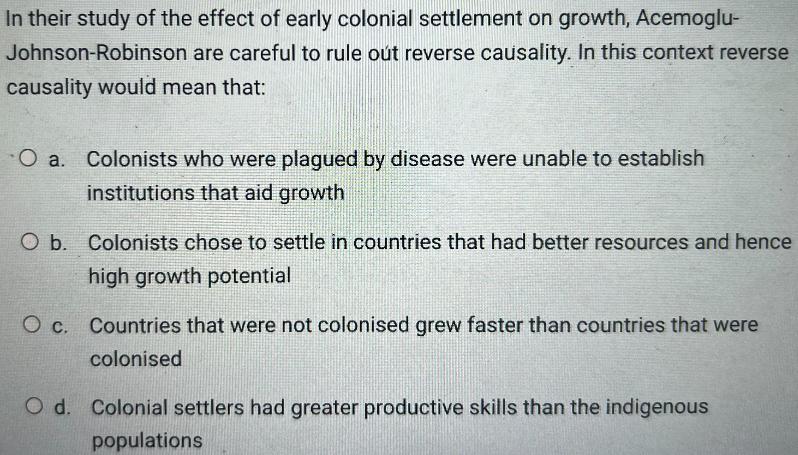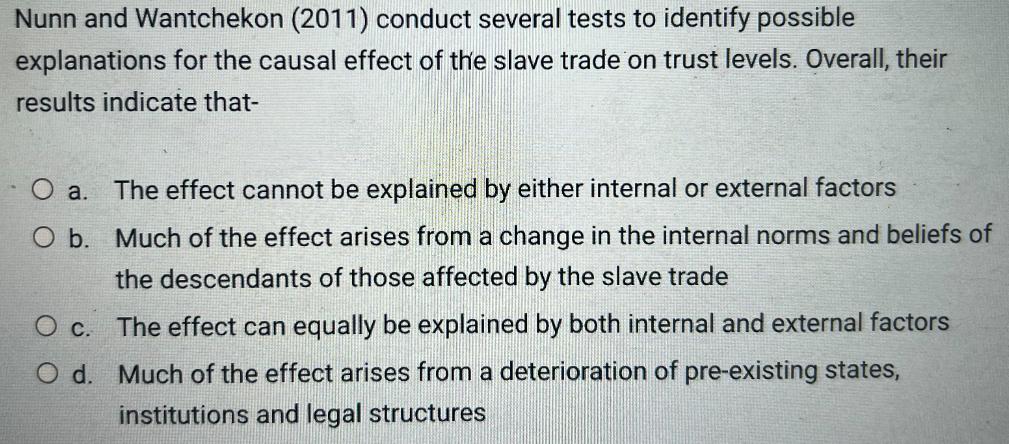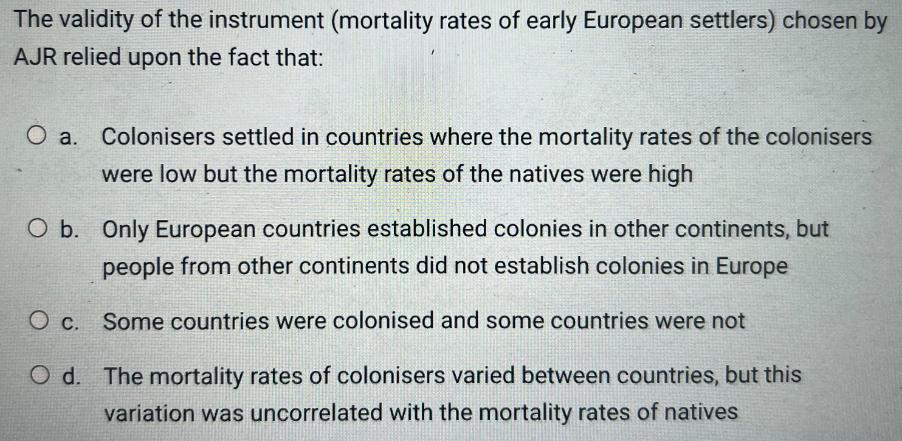Answered step by step
Verified Expert Solution
Question
1 Approved Answer
In their study of the effect of early colonial settlement on growth, Acemoglu- Johnson-Robinson are careful to rule out reverse causality. In this context



In their study of the effect of early colonial settlement on growth, Acemoglu- Johnson-Robinson are careful to rule out reverse causality. In this context reverse causality would mean that: O a. Colonists who were plagued by disease were unable to establish O b. institutions that aid growth Colonists chose to settle in countries that had better resources and hence high growth potential O c. Countries that were not colonised grew faster than countries that were colonised O d. Colonial settlers had greater productive skills than the indigenous populations Nunn and Wantchekon (2011) conduct several tests to identify possible explanations for the causal effect of the slave trade on trust levels. Overall, their results indicate that- O a. The effect cannot be explained by either internal or external factors O b. Much of the effect arises from a change in the internal norms and beliefs of the descendants of those affected by the slave trade O c. O d. The effect can equally be explained by both internal and external factors Much of the effect arises from a deterioration of pre-existing states, institutions and legal structures The validity of the instrument (mortality rates of early European settlers) chosen by AJR relied upon the fact that: O a. Colonisers settled in countries where the mortality rates of the colonisers were low but the mortality rates of the natives were high O b. Only European countries established colonies in other continents, but people from other continents did not establish colonies in Europe O c. Some countries were colonised and some countries were not Od. The mortality rates of colonisers varied between countries, but this variation was uncorrelated with the mortality rates of natives
Step by Step Solution
There are 3 Steps involved in it
Step: 1
Reverse causality refers to the situation where the presumed cause is actually the result of the effect In the context of AcemogluJohnsonRobinsons study on the effect of early colonial settlement on g...
Get Instant Access to Expert-Tailored Solutions
See step-by-step solutions with expert insights and AI powered tools for academic success
Step: 2

Step: 3

Ace Your Homework with AI
Get the answers you need in no time with our AI-driven, step-by-step assistance
Get Started


